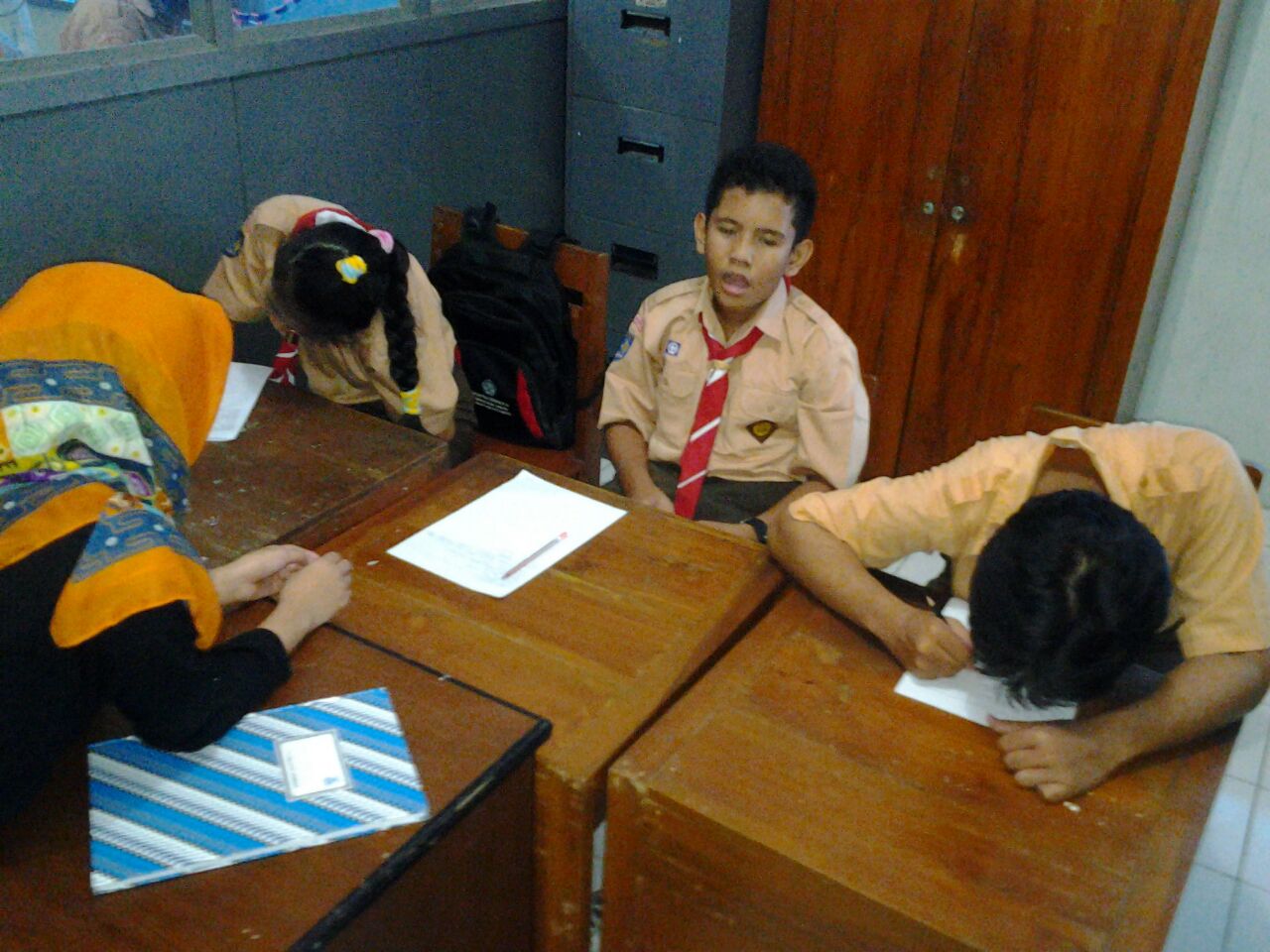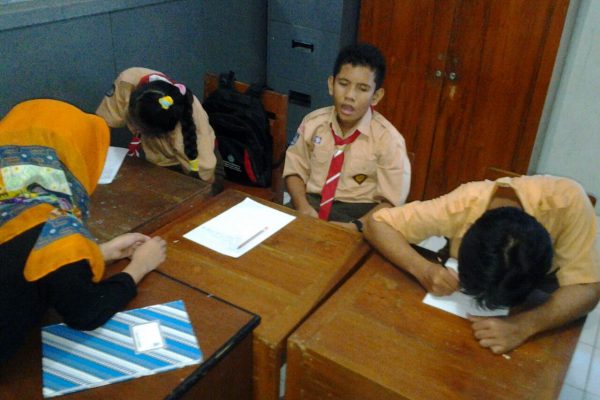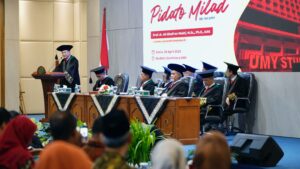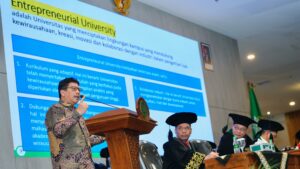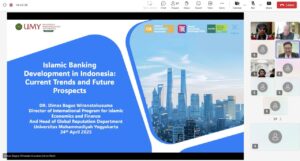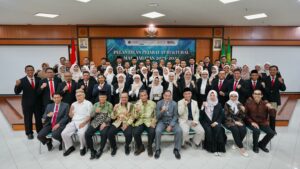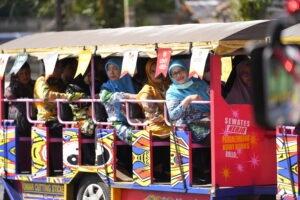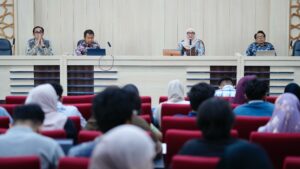The concern of students and young generation about the disabled is elevating. They attempt to cope with problems confronted by the disabled. A team of Universitas Muhammadiyah Yogyakarta (UMY) also displayed the concern about the disabled.
Shofia Chairunnisa, Retno Wulandari, Yovi Cajapa Endyka, Amalia Rahmawati, and Desy Octafiyani were students of Law and Medical Faculty of UMY engaging in overcoming the disabled problems. Through a program of ‘PENA-SARAN: Training and Coaching Javanese Literature and Handicraft for the Disabled in Yogyakarta’. They attempted to train soft skills of the mentally disabled and autistic children in State Special School (SLB) 1 Yogyakarta.
Yovi Cajapa Endyka stated that the training focused on two aspects. First, it concerned with Javanese Literature that they were drilled through pantomime and writing. Second, it was dealing with handicraft that they would paint and make handicrafts as brooches, flowers, necklaces, bracelets, and beads.
“There are 20 pupils joining the training. They are categorized as low, middle, and high disabled. For autistic pupils, we concentrate on Javanese Literature through writing. For the low disabled, we drill them to express the art through pantomime. Additionally, the handicraft training is joined by the mentally disabled and autistic pupils and it hinges on their interest and strength,” explained Yovi interviewed in Public Relation Bureau of UMY on Tuesday (12/5).
The training would be carried out three times a week. Yovi and his team would provide the training till June 2015, before Monitoring and Evaluation (Monev) of Directorate General of Higher Education (DIKTI) of the Republic of Indonesia. “The program has been organized since February 2015. However, it should be continued till Monev of DIKTI in June since it included in Student Creativity Program of Community Service (PKM-M). The program now has been running about 70 percent,” informed Yovi.
Yovi also conveyed that the reason why his friends and he conducted the training was that they contended that the mentally disabled and autistic pupils were different from the other disabled. The disabled did not have any difficulty mentally and emotionally while the mentally disabled and autistic pupils had. “The mentally disabled and autistic pupils get difficulty in communicating. We are eager that they could be productive and communicative as others. Based on the circumstance, the idea for assisting them face communication problems through the training came up. It aims at helping them be more productive and communicative,” he told.
Nevertheless, Yovi continued, giving the training was not easy. When they began the program, they were not welcomed by the participants. Thus, they had to find the way to run the program well. “Ultimately, every time they start the training, they would invite them to have calisthenics, play, and arrange ruby. Then, we could give them the training. Yet, when they got bored in the middle of the training, we would immediately ask them to play again until they were willing to involve in the training,” he inserted.
Furthermore, Shofia Chairunnisa asserted that there were two methods of the training. First, they called the first method as ‘working on all limitation’. It implied that pupils were required to make accessories and paint once after three meeting of handicraft training. “The second method is ‘creating literature on all limitation’. It refers to choosing their literature collection to coin a book in the end of the program so that there is the real evidence of their work,” he elucidated.
In the end of the program, according to Shofia, there would be an exhibition of their work. It pointed out at being a benchmark of the success of the Pena-saran program. It was expected that the exhibition would be a medium to create broad network for the disabled in Yogyakarta. “We wish that their artwork and writings could be published on local and national newspapers. For one reason, it was only a few that writings of the disabled were published on the media so that they were lack of space to express their ideas. We also hope that they would be more independent by this program, could remain productive and have skills. Hence, they would not be underestimated,” he ended.
